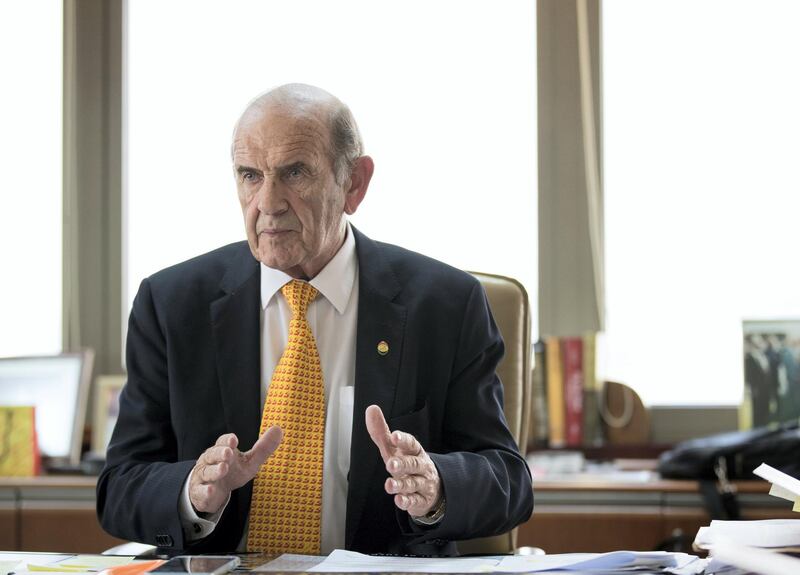Dubai Duty Free estimates airport sales in 2019 will remain little changed from this year as airlines reduce flights they operate when one of two runways at Dubai International Airport closes for upgrades.
The Dubai airport retail operator is on track to ring in $2bn in sales this year, driven by spending from Chinese travellers on branded watches and cosmetics, Colm McLoughlin, chief executive of Dubai Duty Free, told The National. This year perfumes were the biggest-selling product, accounting for a third of revenues, followed by liquor with 10 per cent and tobacco and cigarettes at 10 per cent.
“We expect 2019 to be about the same as this year, growth in 2019 would be small,” he said. “What’s important for us is marketing, offering good value and in some instances that means we have to reduce our margins, which we can do, and offer special prices and discounts at various events during the year that have a positive effect on our sales.”
Airlines at Dubai International Airport, the world's biggest hub by international traffic, will reduce flights they operate for 45 days next year when the southern runway will be closed from April 16 to May 30 for resurfacing and replacement of ground lighting. Emirates, the world's biggest carrier by long-haul traffic and the home airline, will reduce flights by a third during the period. Emirates will cancel some flights, reduce the number of flights to certain destinations and reschedule others. The airport expects to handle just over 90 million passengers next year from 88.2 million last year.
China became the fourth largest source market for tourists to Dubai, growing 12 per cent to 641,000 visitors in the first nine months of this year, thanks to the visa-on-arrival scheme, according to a Dubai Tourism report released on Sunday.
The number of Russian travellers through Dubai airport "recovered in a big way" following the drop in the rouble and gave the retailer a boost in sales as Russians are "big spenders", Mr Mcloughlin said.
Tourism from Russia grew by 60 per cent year-on-year in the first nine months to 460,000, Dubai Tourism said.
________________
Read more:
[ Dubai welcomed a record 15.8 million visitors last year ]
[ Dubai Duty Free has record sales in 2017, reversing a two-year decline ]
________________
The airport retailer, which charges 5 per cent VAT on products at the arrivals terminal, said the tax resulted in a drop of Dh100 million in that segment but gave its departures terminal a boost of Dh140m in extra revenues.
"Overall, the gain is more than the drop, as people buy tobacco and luxury goods at the airport," he said.
Dubai Duty Free sold 75 million pieces of merchandise this year compared to 73 million in 2017.
Dubai Duty Free, which sees no requirement to borrow next year, expects a round of fund-raising "to be very much in the cards" when work starts on the expansion of Dubai's second hub Al Maktoum International Airport, Mr McLoughlin said, without providing an amount or a timeline.
Dubai expects to spend about $36bn on the airport expansion and the aviation complex where it is located.
An expansion of Al Maktoum, or DWC as its known, is expected to open in 2030 with a capacity of 130 million passengers annually in the first phase and ultimately 260 million, according to the Dubai government's media office. The first phase of expansion was originally slated for 2025.
The delay in DWC's expansion will not affect the airport retailer as Dubai International is working to raise its capacity to 118 million from 100 million, which "fills and accounts for" the delayed expansion of the second hub, Mr Mcloughlin said.
He expects airport retail sales at Dubai Duty Free, which marks its 35th anniversary this year, to climb to $3bn by 2027 and is "optimistic" about growth over the next five years.
The state-controlled airport retailer is not currently looking into the sale of a stake in its business nor taking over other airports' operations, he said.







